Great Grads: Fall 2020
Each fall, thousands of University of North Texas students earn their degrees and become UNT alumni. Every one of them should be tremendously proud of everything they've accomplished in their time in Denton.
In celebration of our Fall 2020 graduates, below are the stories of a few of those freshly-minted alumni who overcame adversity and achieved great things on their way to becoming this semester's Great Grads.

Asya Pitre
Biology
By Amy Brundeen
Taking charge seems to come naturally to Asya Pitre. The youngest of six siblings, she grew up taking care of her mother who struggled with health issues throughout Asya’s childhood. But she wanted to make a difference beyond her family or even her hometown of Houston.
“I grew up caring for my mother, but I knew I needed to pursue higher education to help with the best of my ability,” says Asya. “I plan to attend medical school to become a primary care physician and serve underserved communities across the nation and eventually around the world.”
Wanting to serve the greater community, Asya came to UNT to prepare for medical school and says that one of the things that drew her to the university was the diversity she saw.
“I love seeing others that look like me around campus,” says Asya.
In addition to the diversity she loves, the financial resources that have helped support her brought her to UNT. Asya is an Emerald Eagle Scholar. But it isn’t that assistance alone that has sustained Asya. She has found support in a number of individuals, including her microbiology professor Hyunju Kim and her pre-health advisor Todd Lang, who helped her succeed academically and personally during Asya’s time at UNT.
“They have gone above and beyond for me,” says Asya. “I really appreciate all that they have done.”
Asya is paying forward some of that support by helping others and says she is most proud of the leaders in the organization she brought to UNT. Struggling to find an organization she was excited to be a part of, Asya founded the UNT chapter of Changing Health Attitudes and Action to Recreate Girls (CHAARG), a national student organization that empowers women through health and fitness.
“I knew many other UNT students would also love and thrive in this organization,” says Asya, current vice president for media of the local chapter, which helps members learn healthy habits and brings balance to their lives during college. “I’m proud of the CHAARG executive team. They have worked hard during a pandemic to ensure our members could have the CHAARG experience virtually. I’m excited to see this chapter grow and reach more people.”
Finding balance between work and personal life is important to Asya’s success. She is graduating a semester early, with honors. Last fall, she worked as a laboratory assistant in her microbiology class and was one of the few student volunteers chosen to work at the Denton Community Health Clinic, which gave her direct patient contact, something that certainly has helped prepare her for her future career.
Even after the pandemic hit, she accompanied Dr. Filippo Masciarelli of the Denton Community Health Clinic in seeing patients at Our Daily Bread, a community organization serving Denton’s homeless and at-risk population.
Asya says that balance has been a challenge in the new environment of online classes and social distancing.
“It’s been hard not to burn out when I can work all day and night,” says Asya. “But I’ve been making sure I take time for myself throughout the week.”
Asya advises incoming freshmen to do the same and be a part of something bigger than themselves.
“Get involved. Find an organization that will foster personal development, and stick with it,” Asya encourages. “School can be tough, especially when all you do is study. Find that balance.”
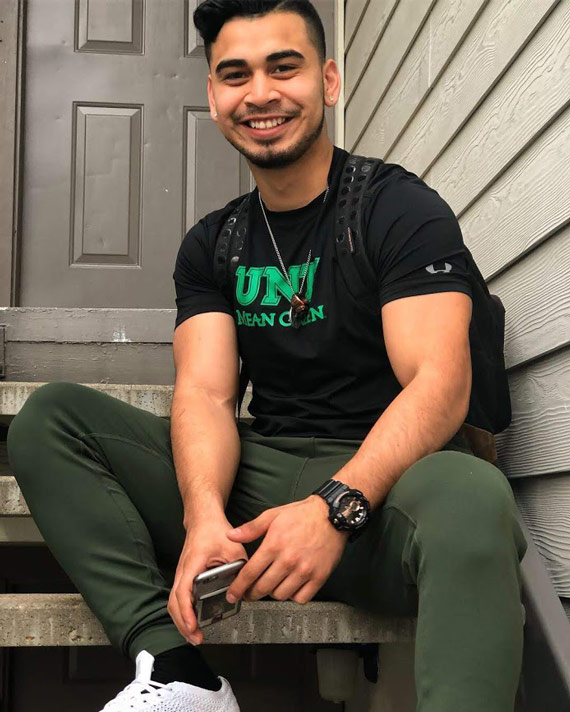
Johnny Aviles
Mathematics and Secondary Education
By Erin Cristales
You could call it a lot of things. A calculated approach. A multiplication of possibilities. An undeniable case of beating the odds.
But for Johnny Aviles, the intervention of his high school math teacher Jonathan Pisors — an educator whose encouragement and expectations pushed Johnny from apathy to aspiration — was more than all of that. It was, quite simply, exactly the push he needed to get to where he is today: a UNT math and education graduate ready to make a difference in the lives of his future students.
“He sent me down the right track,” says Johnny, who after graduating from Fort Worth’s North Side High School attended Tarrant County College before transferring to UNT. “My freshman and sophomore years in high school, I was just there to play football and goof around. Then my junior year, I met Mr. Pisors and he’d ask me questions like, ‘What are your grades? What are you doing? What’s next for you?’”
Johnny spent his junior and senior year determined to make Pisors — and himself — proud, adding nearly an entire point to his GPA by the time he graduated. That tenacity multiplied exponentially by the time he enrolled in undergraduate studies at UNT, where he chose to double major in mathematics and secondary education and take part in UNT’s rigorous Teach North Texas program. All the while, Johnny — one of seven children and one of two siblings currently in college — worked two jobs to finance his university studies. It’s been worth it, he says, to serve as a role model to his family.
“I didn’t do all of this just for myself,” says Johnny, whose goal after graduation is to teach high school math. “I knew that by earning my degree, there’s a higher probability of my siblings going to college, that it’s more likely my children and future family members will earn a degree. If I’m just a small part of the reason they keep pushing forward, that’s enough for me.”
And members of his family aren’t the only ones he’s hoping to motivate. Like Mr. Pisors, Johnny has his eye on encouraging students to do their very best, even when the path to a brighter future appears daunting.
“Everybody has a lot of things going on in their life, and sometimes it feels like there’s nobody out there to support you,” says Johnny. “Be the adult your childhood needed.”
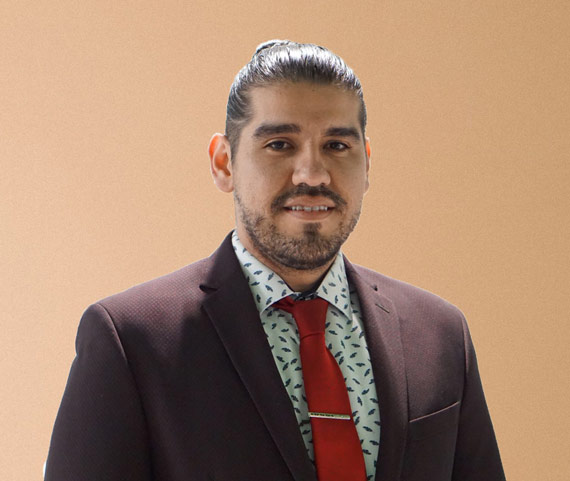
Josue Hernandez
Journalism and Advertising
By Jessica DeLeón
When Josue Hernandez arrived in the United States at age 8, he didn’t know a word of English.
“Immediately fazed by the challenge of a language barrier, I realized how valuable the skill of communication could be,” says Josue. “At the time, I was desperately attempting to be understood, literally.”
Now he’s made communication his career. Josue will graduate this December with a degree in journalism and advertising. He has landed a job as a social media strategist for the Dallas-based property management company Ricchi Group, where he will lead content creation in both Spanish and English. His goal is to own his own advertising agency, but he has already fulfilled the dream of education his mother had for him when she and Josue immigrated from Chihuahua, Mexico, to Arlington, Texas.
“Education was always my mother’s solution to everything,” says Josue. “She believed that in order to become something you have to know something.”
When he began school, Josue was enrolled in an English as a Second Language class for six months. He got help learning English from the Harry Potter books and by watching American TV shows like Friends and Seinfeld. He began writing his own stories after his grandmother read him poems she had written about perseverance and the beauty of life.
“I tried to mimic my grandma’s ability for storytelling,” says Josue. “I would write little heroic stories of kids overcoming challenges and stuff like that.”
By the fifth grade, he attended all English classes. He also was the only English speaker in the house, and soon became his family’s translator. But he noticed an alarming misrepresentation in the translations -- leaving out crucial information or making it hard to understand -- it made him feel discouraged.
“I always felt like I was a second-tier student, never being top of the class or ‘the smart kid’ because of the language barrier, so this might have to do with my obsession with being able to communicate,” says Josue.
He earned his associate’s degree in journalism at Eastfield College in Dallas and worked for EtCetera, the school newspaper, as a writer and photographer. He transferred to UNT in 2018 and worked for the North Texas Daily – where he has worked as a sportswriter, photographer, social media marketer, copywriter and advertising strategist, and even got to meet NFL Hall of Famer Joe Greene when his statue was unveiled at the gates of Apogee Stadium. He also participated in the Mayborn’s National Student Advertising Competition (NSAC) team, Gravitas, last spring and joined the Ad Club.
“Advertising took my interest when I realized I could make the difference I wanted to see and represent my community with better communication,” says Josue. “My bicultural background allows me to dip into two pools of ideas and messages that I believe can be combined into what is my and many others’ realities.”
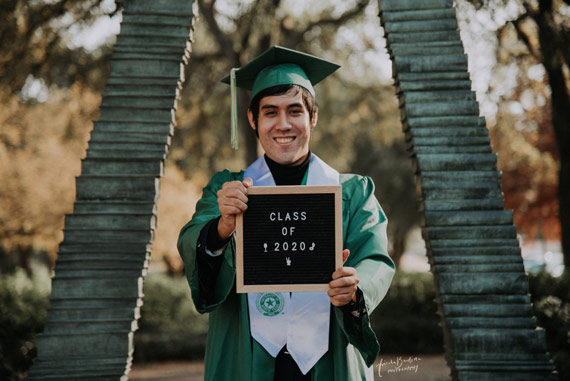
Robert Nance
Biology, Chemistry and Violin
By Erin Cristales
Robert Nance knows harmony.
As a triple major in biology, chemistry and violin, his five years of undergraduate studies at UNT have been an exercise in balance — an intermixture of science and music that have made the future doctor’s life richer for the journey.
“Music is something we understand on a level beyond verbal expression. You could have a full orchestra where each player speaks a different language but the one language they speak and understand together is music,” says Robert, an Arlington native. “And medicine is a place where you’re always going to learn —it’s the one field where we really incorporate ourselves because the apparatus we’re working with is the human body.”
Robert first fell in love with the violin as a fifth grader. When he initially applied to UNT, it was with the goal of becoming a music educator. He was impressed by what he considered to be “one of the best music schools in the world,” but by the end of his senior year in high school, his career aspirations shifted to medicine. That’s why he felt so lucky, he says, to have already been accepted to UNT, one of only 131 Tier One research universities in the nation.
“It wasn’t the typical story of ‘Oh, I’ve wanted to be a doctor since I was a child,’” says Robert, who notes he was partly inspired to pursue the field because of his mother, a registered nurse’s assistant. “But if there’s one thing we’re always going to need in society, it’s health care professionals.”
Nearly 18 months ago, Robert joined the lab of Amie Lund, associate professor of environmental toxicology, where he’s researched the neurological effects of diabetes drugs on mouse astrocytes and presented his undergraduate thesis on the topic as part of the Honors College research track. He’s completed semesters abroad in Andalusia, Spain, for his Spanish minor and has taken as many as 19 hours of classes per semester — which as a music major, can feel nearly double that. So you’d be forgiven for assuming he either never sleeps or never leaves his apartment. Neither is true, he laughs.
“I will admit that, initially, I had the mindset of, ‘I have to get through undergrad as fast as I can,’” says Robert, who plans to complete a one-year post-baccalaureate program following graduation before applying for medical school. “My second year, things did not go as well as I had hoped academically and that was a big wake-up call. I realized that I’m human, and I’m going to make mistakes, and we all have to live life while we still can.”
With all of the challenges that have accompanied completing college during COVID-19, Robert says it’s also critical for this year’s graduates to reflect on their incredible accomplishments — and the beginning of a new era.
“This is an unprecedented time not just in terms of the pandemic, but also in terms of cultural change,” says Robert. “We’re in a big transitional phase, and we should let this drive us to keep pursuing our interests and passions, to keep pursuing the improvements we’re after and to use that resolve to better mankind.”

Jazzmine Mendez
Early Childhood Development
By Amanda Fuller
Jazzmine Mendez knew from an early age that she wanted to be a teacher, and she was drawn to UNT for its outstanding Teacher Education Program and founding history as a teacher’s college. Upon her first visit to UNT with her Houston high school’s Upward Bound program, she knew something was calling her name.
However, just months into her freshman year, her tumultuous relationship with her parents reached an all-time low, and she was left with no means to finance her future at UNT.
“My FAFSA application was due in January and I didn’t have access to their financial information,” says Jazzmine. “I didn’t know what to do. I was thinking about dropping out.”
With help from the director of her Upward Bound program, she worked with UNT’s Student Financial Services team to secure a dependency override that would enable UNT to help her complete her FAFSA each year.
“I went to the FAFSA events on campus every year after that so they could help me reapply.”
It didn’t take long for Jazzmine to find a support system in Delta Kappa Delta, part of the Multicultural Greek Council. She was inspired by the sorority’s philanthropic focus on child abuse awareness and prevention.
Jazzmine also started working in the Dean of Students Office, where she progressed from administrative duties to answering Campus Assessment, Response & Evaluation (CARE) Team calls to overseeing UNT’s Gowns for Grads program.
“I learned so many leadership skills, but I let my grades slip. If I wanted to get into the Teacher Education Program, I had to get my GPA back up,” Jazzmine says “I went to my advisors every semester, well before the deadline, to make sure I knew which classes to take. They were always so helpful, but I would cry almost every time I left. I just kept thinking, ‘There’s still so far to go.’”
After working with her advisor and setting up a meeting with the clinical professor in the Department of Teacher Education and Administration, Jazzmine got accepted to the program. When she got the news, Dean of Students Maureen McGuinness encouraged Jazzmine to reach out to Bertina Combes, former interim dean for the College of Education and current vice provost for Faculty Success.
“We just clicked. I’ve met with Dr. Combes at least once a month since then, and when I tell you that she has helped me with everything, I mean everything. She’s made me more positive, more professional. She encouraged me to think of graduate school not just as a possibility, but as a plan. She’s gone above and beyond, and I am so thankful to have her as my mentor.”
Jazzmine had just begun her classroom observations in Denton ISD when everything went virtual – including UNT’s commencement ceremonies.
“I’m sad to be leaving, but I’m proud to call UNT my alma mater. There were so many times I didn’t think I was going to make it – especially financially. But I’m here. I’m finally going to be a teacher, something I’ve wanted my whole life.”
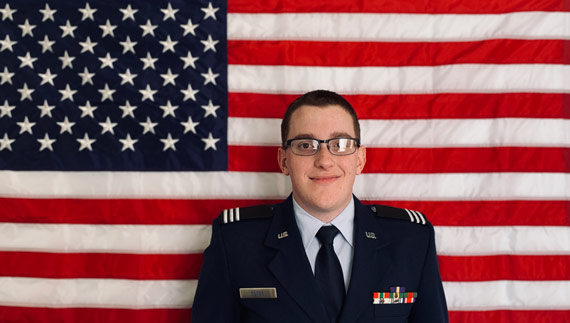
Colton Estes
Computer Science
By Trista Moxley
Colton Estes decided he wanted to be an officer in the U.S. Air Force as a fourth grader. Now, he’s preparing to graduate with a degree in Computer Science, which he’ll use as UNT’s first commissioned officer in the U.S. Space Force.
“The Air Force seemed like an interesting branch to serve in, as the aircraft have always been fascinating to me. By the time I reached college, I decided that I wanted to aim for a career in cyberspace operations,” says Colton. “Once the Space Force was signed into law in December 2019, I was attracted to the idea of being one of the first second lieutenants to commission into the newest military branch. It’s a historical moment, and something I can say I was a part of.”
When selecting possible jobs for his post-college assignment, the Kaufman, Texas, senior selected “Space Operations Officer” as one of his top preferences, which is now exclusively part of the Space Force.
“In August when I was notified that a selection board was being formed to select ROTC cadets for the job, I decided I should go for the chance to be selected. A couple of weeks later I found out that I was selected and was placed on the path to be a part of history!”
Colton’s journey to Space Force also allowed him to pursue his degree and explore his passion for computer and information security.
“I wanted to make sure my bachelor’s degree wasn’t just to earn a commission,” says Colton. “I’ve always liked computers and it’s been challenging and interesting to learn more about how they work, especially in the cybersecurity realm.”
Outside of the classroom, Colton has been busy as a leader in the Air Force ROTC unit, which was part of the reason he chose UNT.
“I am super proud of my ROTC detachment. I will have been in school/ROTC for four-and-a-half years by the time I graduate, and to see where our detachment is now compared to where it was when I started is amazing,” says Colton. “The cadets that I will be leaving behind keep getting better and we are constantly improving so that each class graduates as better leaders than the last.”
When COVID-19 hit, it required adjustments in Colton’s classes and his work with ROTC. He noted that not physically going to class made it hard sometimes to get motivated and stay focused. Additionally, social distancing makes training more difficult during ROTC physical training sessions, when cadets naturally want to congregate during breaks. They’ve all worked hard to remind each other about keeping appropriate distance during training.
During his time at UNT, he found that having an organization system that worked for him helped keep him on track and motivated.
“Everyone’s idea of ‘staying organized’ is different – you just need to find what works for you and follow it,” says Colton. “Be sure to take time for yourself. Do something you enjoy, watch your favorite TV show, play video games, go for a hike, whatever allows you to decompress. This will help keep your life balanced and keep you motivated to push through and finish your degree. It will be tough at times, but don’t be afraid to reach out and get help when you need it.”
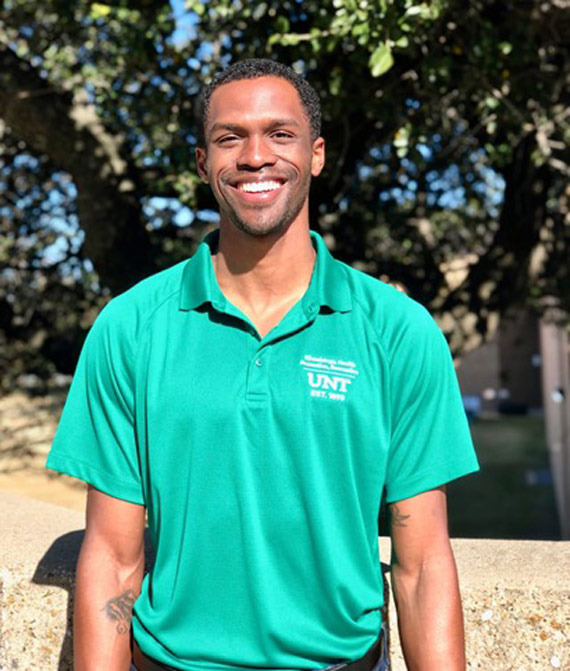
Christopher Boyd
Kinesiology/Sport Psychology
By Jill King
Christopher Boyd was a sprinter on the University of North Carolina-Charlotte track team when he first visited a sport psychologist because of a minor hamstring injury that continued to frustrate him. But he says it was actually a close friend’s experience that helped redirect his career goals from medicine to sport psychology.
“My friend on the track team had a significant hamstring injury, which cost him a huge portion of the season and, of course, devastated him,” says Christopher. “He went to work with the sport psychologist and told me how much working with her helped him learn to cope with his injury. The biggest thing that stuck out to me was how fast he was able to recover.”
After learning more about the field, Christopher changed his major to exercise science with plans to study sport and performance psychology at the graduate level. When the time came for him to choose a graduate program, the sport psychologist at UNC-Charlotte knew of a good one — at UNT. Christopher, who grew up in Greensboro, N.C., was soon headed for Denton to pursue a master’s degree in kinesiology with an emphasis in sport psychology.
“I am very family oriented and spend a lot of time with friends, so to be away from all of them was hard on me, but my classmates were great at inviting me out and showing me Texas culture. I even had some coworkers invite me to spend time with their families for holidays when I wasn’t able to go home,” says Christopher, who also notes that supportive faculty members like those on his thesis committee — Scott Martin, Allen Jackson, Robert Olson and Tao Zhang — had a huge impact on his success at UNT.
Christopher worked as a graduate assistant, teaching classes, assisting students with assignments and helping with research. He got experience as a sport psychology consultant and worked on his thesis, “Predictors of Perfectionistic Tendencies in Undergraduate Kinesiology Students.”
In his current job, he works with military personnel at Fort Jackson in South Carolina, helping with overcoming injury, career adjustment and mental skills development.
“I have family who served in the military so I naturally have a certain level of respect for those who serve,” says Christopher. “I also love to learn new things and gain as much experience as I can, so working with this population is truly a unique experience that is pretty different from working with intercollegiate athletes.”
The more experience he gets, Christopher says, the better he’ll be able to determine what type of degree and program he wants to pursue at the doctoral level. He can carry with him one thing above all else he learned at UNT — “the importance of being passionate.”
“When things got rough, I found that reminding myself why it is I’m doing what I’m doing is the biggest motivator.”
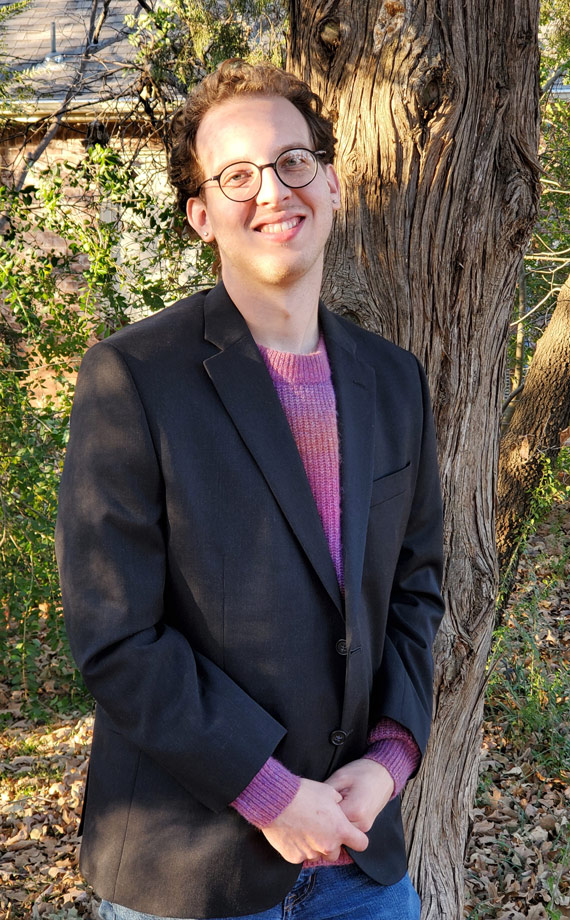
Connor McCain
History and Religion
By Heather Noel
Since the first day Connor McCain stepped onto the UNT campus, he felt at home.
The National Merit Finalist from Oklahoma City talked with Honors College faculty during a tour with his parents and remembers being struck by the personalized and thoughtful conversations.
“I ended up meeting almost everyone at the Honors College that day. That had a really big effect. I was grateful they took the time to talk with me and were very helpful and supportive,” says Connor.
The caring nature of UNT faculty turned out to be exactly what Connor needed when four days into the Fall semester of his junior year, he got the news that his dad had cancer. By midterm, his dad lost his battle with the disease.
Connor says that fall was “one, long blur,” but his professors worked with him on assignment deadlines, enabling him to make it through the semester without dropping any classes.
“One thing I really learned most from my dad was how to have a proper work ethic. That semester I learned that people really do value hard work more than anything else,” says Connor.
Though he originally wanted to be a professional trombone player and enroll in UNT’s world-renowned College of Music, Connor quickly realized a music career wasn’t in his future. Instead, he found a new calling to become a professor of history and gender studies.
As a history and religion double major with a minor in LGBT studies, Connor has received many opportunities to research as an undergraduate. During an Honors College seminar class taught by James Duban, professor of English and associate dean for research and national scholarships, Connor explored the influence of 19th-century unitarian newspaper Christian Inquirer and wrote an article on the topic that will be published in the forthcoming North Texas Journal of Undergraduate Research. His time in Associate Professor Nancy Stockdale’s history class on food, sex and drugs in the Middle East opened his eyes to a new way of looking at food’s role in society and inspired his honors thesis about how to most accurately and appropriately discuss commodities in history.
“I have had Connor in multiple classes, and I am always struck by his intellect, his ability to 'think outside the box' and work with theory as well as assemble historical narrative from primary sources,” says Stockdale.
After graduating from UNT this fall, Connor plans to pursue a doctoral degree in American studies or history on his way to inspiring the next generation of scholars with a career in academia.
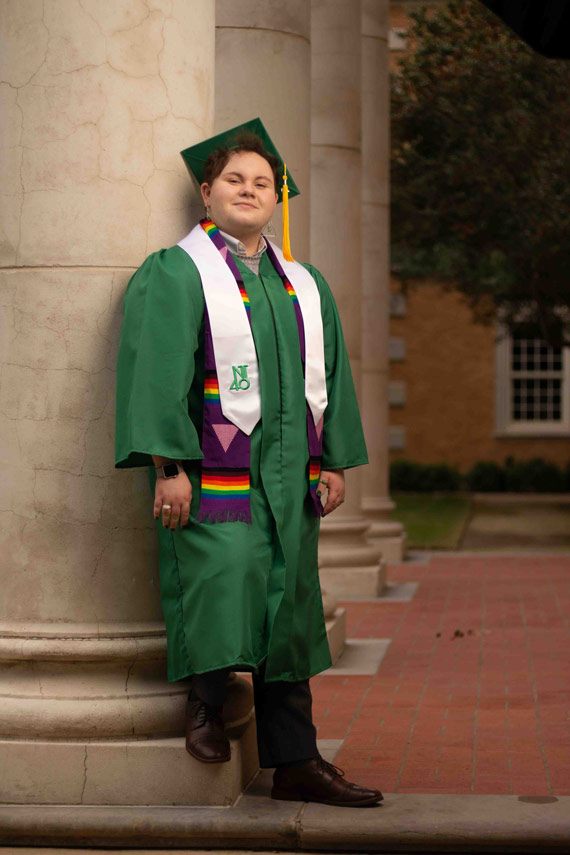
Florence Tyler
Political Science
By Eunice Archila
“I once described myself as a transgender vegan from Texas to a group of Vanderbilt University equity and diversity officers in order to catch their attention and get them to stay late at a meeting to hear my research and honestly, I stand by that.” Florence, who uses they/them pronouns, may not have been so direct a few years ago, but thanks to their personal growth, education and involvement at UNT, they are confident in themselves—inspiring us all.
Florence Tyler grew up in Boerne, a small town near San Antonio, and they are the first from their family to leave the area and branch out to North Texas. As a senior in high school, when Florence toured the University of North Texas campus, they were immediately drawn to UNT because of Mean Greens Café, a plant-based dining hall. They knew UNT was the place for them.
When asked what their favorite thing about UNT is, Florence says it’s “the fact that it stands out from all other Texas universities. UNT is unabashedly itself! That, and the vegan cafeteria!”
“I started off thinking I was going into the film industry and soon realized that wasn’t for me. I became a political science major on the heels of the Texas ‘Bathroom Bill.’ After seeing my rights actively open for debate while in high school, I have dedicated myself to working toward more equitable and people-oriented health systems.”
Majoring in political science with a minor in journalism aligned with Florence’s dreams best. They may even continue their career at UNT by applying to the UNT Health Science Center in Fort Worth.
“I hope to work toward a master’s in public health to work to build a more equitable system for all marginalized and stigmatized groups, including trans and gender non-conforming individuals,” says Florence.
During their time at UNT, Florence has been involved with the UNT community. They have worked with the Willis Library for the past year and was active in the Student Government Association and University Program Council; Florence was even a founding member of the Reproductive Rights Organization of Student Educators (ROSE).
The list goes on and on. Director of Pride Alliance Kathleen Hobson, who uses they/them/their pronouns has been an immense help for Florence.
“Kathleen is a wonderful supporter and mentor. They chose me as a Division of Equity and Diversity scholarship recipient my sophomore year, and while volunteering with the Pride Alliance, I got to know them. I’m not sure that I would have gotten through my undergraduate education without Kathleen and I certainly wouldn’t be who I am today without their influence,” says Florence.
In order to fight for a more equitable world, Florence knew they had to find an internship that would open doors to working with government agencies and policymakers. Florence was able to intern for the House of Representatives in the Office of Congressman Henry Cuellar. They learned lifelong lessons that will help them in their future career but didn’t feel at liberty to be their authentic self.
“I wasn’t out as transgender in the office until my last week for fear of losing my placement due to a not-so-accepting staff, but I also got to experience something that few students do. The life experience of being at the center of government (and the museums in D.C.) made the experience beyond worth it,” says Florence.
Growing into themselves, they have learned that their self-worth and productivity don’t depend on anything or anyone else.
“Who you are is not determined by what you accomplish,” says Florence.
At one time, they used to be meek person and wouldn’t asked people to call them by their correct pronouns(they/them/theirs), but now they are very confident in themselves.
“Thanks to my time at UNT and experiences on and off campus, I think I am a more confident, self-assured person than I ever have been – I’m ready to help others!”
For incoming freshmen, Florence says that the best advice is being wants you to remember to be yourself.
“You go to UNT and you can do anything! Be yourself, be brave and be kind. You never know how many people you can inspire by just being you!”
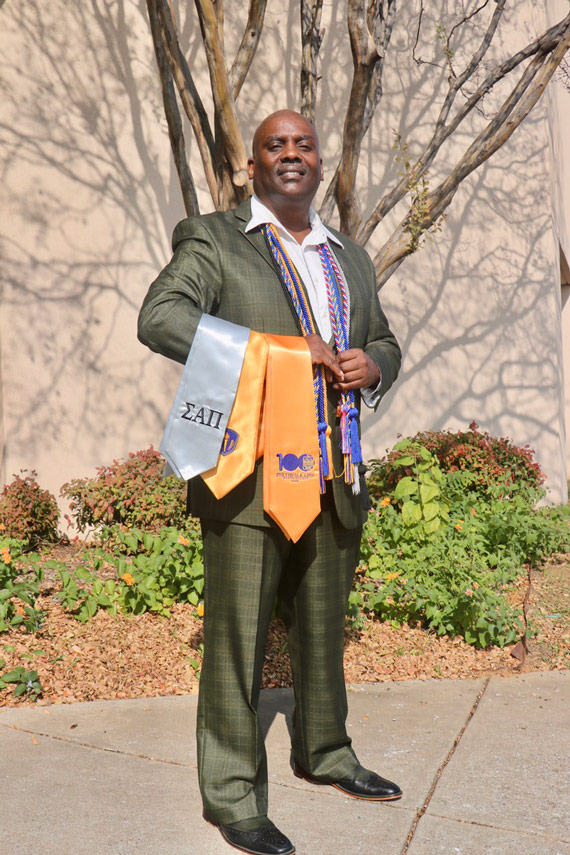
Jerry J. Jerry
Bachelor of Applied Arts and Sciences
By Trista Moxley
Jerry J. Jerry knows all college students have unique stories about their journey to higher education.
“We all have to persevere past some entity to reach our goals,” says Jerry. “As a UNT community member and student, I’m most proud about being accepted into a community of academic achievers. I am capable of accomplishing any of my goals if I persevere.”
The 59-year-old has overcome a lot of life to reach his objectives and earn his Bachelor of Applied Arts and Science degree. A series of family deaths between 1999 and 2012 left him and his mother with only each other. Then, she was diagnosed with a debilitating disease and Jerry moved home to Fort Worth to become her caretaker.
“UNT enabled me to monitor her care and to continue my education,” says Jerry. “Additionally, UNT was one of the first universities in North Texas to desegregate during the civil rights era, which is very important to me. Attending and graduating from UNT has always been a dream of mine.”
Attending classes offered its own set of challenges and as his mother’s health started to decline, so did his grades. He was put on academic probation and on the first day of finals week in 2019, he held his mother’s hand as she passed away. Despite the tragic loss of his mother, Jerry stayed the course and took each one of his final exams.
“All of my professors made an impact, however Dr. Brian Lain, who taught my Communication 2140 course, made the biggest impact on me continuing my studies at UNT,” says Jerry . “Dr. Lain’s empathy helped, as he was the only support I had when my mother passed away during finals week. Student services helped when I was having a bad day, week, month or semester with various services and professional therapy sessions. Financially, when the pandemic closed everything, but our bills kept coming, I was fortunate enough to be awarded a UNT hardship grant.”
As Jerry celebrates being a member of the Mean Green Family, he’s looking forward to continuing his educational journey at Texas A&M University School of Law.
“Unlike life, education does not have an expiration date. Knowledge is empowering and soul enriching. Education is the only thing no one can take from you. Every student’s educational journey is different and any road you take will get you there.”
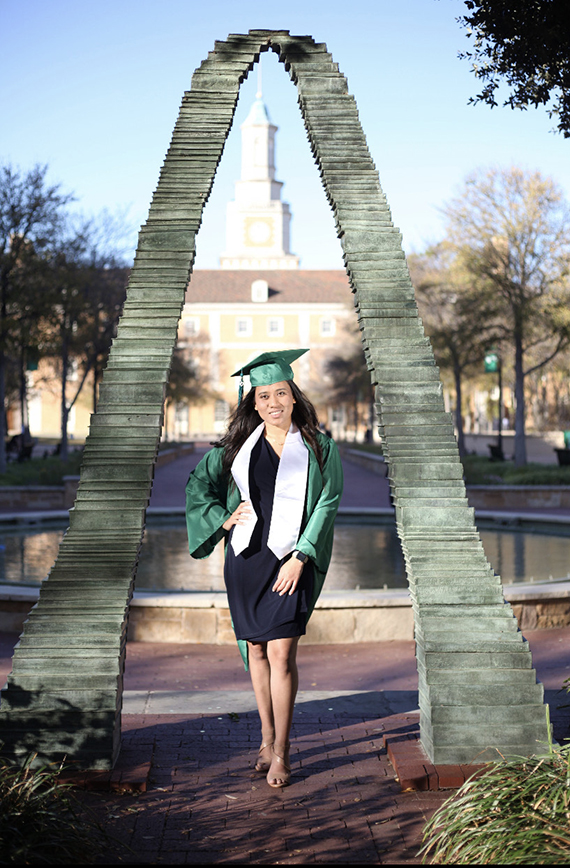
Soma Thapa
Social Work
By Jessica DeLeón
At age 10, Soma Thapa received an award from her hostel as the most helpful student.
“I didn’t know what the whole thing was about,” says Soma. “Later on, when I thought about it, it was a great accomplishment for a child. It was something to be proud of.”
Now that she has earned her bachelor’s degree in social work from UNT, she wants to continue to help – specifically, young girls in her native Nepal. Her homeland faces numerous issues, from human trafficking to gender discrimination, and Soma had always been active in supporting social causes, whether it was volunteering or marching in rallies.
“I really wanted to spread awareness to people,” says Soma. “I believe people can change.”
Soma believes social work is the best way to effect change. After first attending a college in North Carolina, she transferred to UNT for its strong social work program – and because the transfer counselors were extremely helpful.
She also received encouragement on her writing from Libby Dorn, a social work adjunct professor, which Thapa appreciated since she wasn’t always confident of her English.
“She even told me I was the best writer,” Soma says. “That just boosted my entire first semester. It pushed me to do even better.”
But the main motivation that encouraged her in her studies was how young girls are treated back home. In Nepal, many Hindu households in rural areas practice chhaupadi,a custom in which women are isolated during their menstrual cycle. Women are considered impure during this time, so they are forbidden to touch any men, enter the kitchen or attend worship services. Many of them are hidden away in a hut, in which they may face attacks from animals and other dangers.
Soma was allowed to touch her father and brother, but she was forbidden to attend worship services. The government banned the practice in 2005, but the custom remains.
Soma says she wants to understand its root causes, as well as bring awareness to today’s youth so the practice will slow down and ultimately cease to exist.
Janice Lader, an adjunct professor and career coach for the College of Public Affairs and Health Science, says she is impressed by Soma’s determination.
“Some of the stories Soma shared with me regarding the traditions in Nepal were heart-wrenching to hear about, so the fact that she refused to be a statistic by adhering to the country’s misogynous views takes courage and heroism,” says Lader. “I commend her for her strength and determination and know she is already a role model and mentor to many young girls in Nepal, even though this is just the beginning.”
Soma plans to pursue a master’s degree in social work in the U.S. before returning to Nepal. Although the coronavirus pandemic altered her classes and commencement ceremony, she remains positive.
“I still get to graduate,” says Soma. “I still get to witness the celebration.”
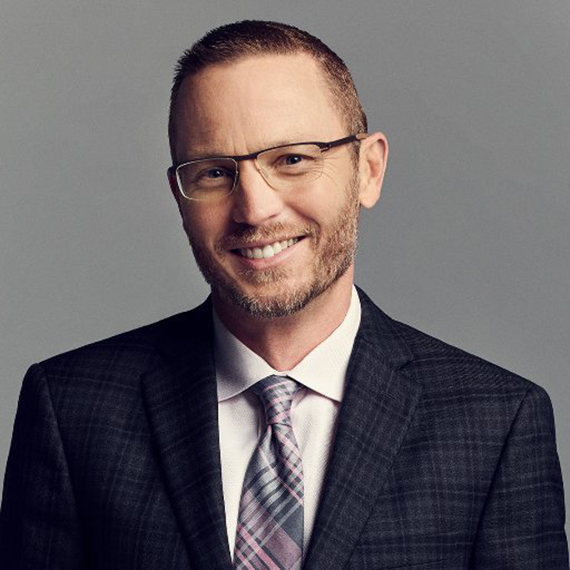
Mark Followill
Bachelor of Applied Arts and Sciences
By Leigh Anne Gullett
It’s been more than 30 years since Mark Followill first enrolled at UNT as a typical 18-year-old college freshman. He started out as a music major, and then switched to geography before leaving Denton short a degree with self-described “youthful impatience” to start a career.
It didn’t take long for Mark to top the airwaves, first on radio and later on television, but it wasn’t as a musician, unless you count the occasional brass-playing gig for The Ticket Timewasters. Young Mark was among the original cast of personalities on 1310 The Ticket when Mike Rhyner launched the now legendary sports talk radio station back in 1994. With three Marconi Awards for “Best Sports Station in America,” decades of absolute ratings dominance in a large media market and a pop culture presence so strong it’s found a national audience, The Ticket didn’t just dominate the sports radio game, it changed it.
If the story stopped there, Mark still would have been a part of broadcasting history, but the late 90s/early 2000s rolled around, and The Ticket’s sister station KLIF 570 needed a studio host for Dallas Mavericks games. Twenty years later Mark is synonymous with Mavericks basketball as the team’s long-time TV voice. The Emmy-winning broadcaster can also be found commentating college football on Saturdays in fall, or handling play-by-play duties for Major League Soccer’s FC Dallas. In recent years, he went international by earning broadcasting duties for major international competitions such as the Olympic games and a FIFA World Cup.
It was the world stage that finally brought Mark back home to UNT seeking to improve his Spanish as an aid in international broadcasting work, not that he ever truly left the university. For more than a decade, he has been returning at least once a year, but often more frequently, to speak to UNT students in Hank Dickenson’s sports broadcast class. It was that same class back in the early 90s where he learned from UNT Hall of Fame broadcaster Bill Mercer. It was Mercer’s habit of regularly bringing in guest speakers from sports broadcasting that stuck with Mark as a way to give back to his former university. That connection made UNT his prime choice for finishing what he started back in 1989 and earning his college degree.
“It made all the sense in the world, and it means a lot to me to finish at North Texas because there’s no working at The Ticket; there’s no doing Maverick games for two decades, and all the other things that led into… World Cups, the Olympics, FC Dallas… these things don’t happen without my time at North Texas,” says Mark. “My time and energy and investment and experience and education I received there for three years way back when, and the relationships there, that is why I’m where I am today.”
In his typical fashion, Mark did more than just finish his original degree plan. After meeting with several academic advisors, he settled on the university’s Bachelor of Applied Arts and Science (BAAS) where he was able to blend his earlier UNT transcript with a hodgepodge of community college classes and tailor a new plan suited to his array of interests in history, anthropology, geography and Spanish. The challenges the pandemic brought this year also brought more opportunity for Mark as a virtual learner. Suddenly, an entire world of previously inaccessible courses was available with summer and fall virtual offerings. Mark honed in on history classes, including a course on African-American history.
“I think it’s incumbent on all of us to re-engage with things that we may have been taught a long time ago and forgotten, or maybe weren’t taught because various views and various things in history are taught based on who’s writing the history,” says Mark. “To get to engage with (African-American history) and learn things that I was sadly very unaware of was really, really important for me. And that class wasn’t an endpoint. It was a beginning of the engagement for me.”
The end result, beyond learning itself, gave Mark enough history credit hours to earn the university’s stamp of approval for a second bachelor’s degree, which he should be able to complete in Spring 2021. Mark has already begun researching graduate degree programs.
“I’ll have no degrees for 30 years and all of a sudden get two in less than a year. So that’s a pretty neat thing. Whatever that’s going to lead me to be able to do, who knows? I think 2020 and COVID have taught us that you’ve got to be prepared for anything right now.”
Musician, broadcaster, anthropologist, historian, Emmy-winner, lifelong learner, world traveler, mentor – Mark Followill has been all of these things, and now he can officially add college graduate.
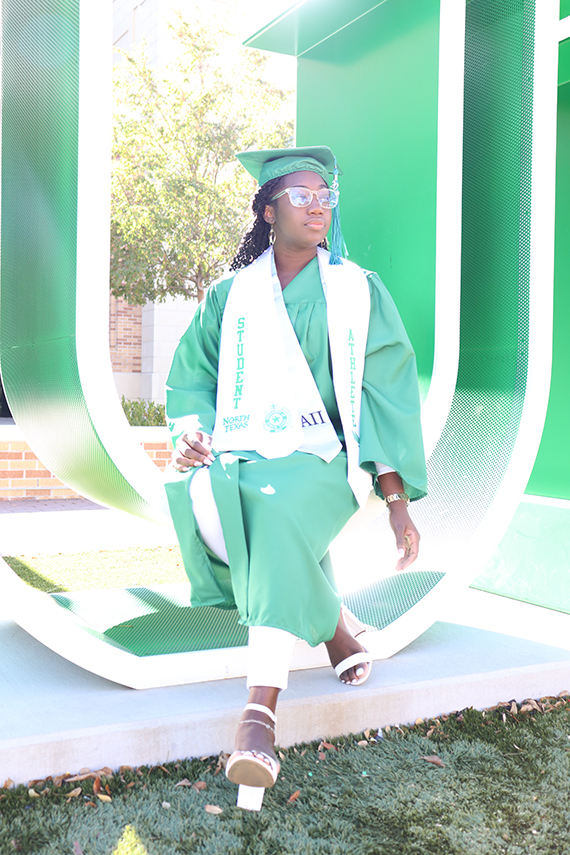
Artesha Richardson
Social Work
By Kayla Lindberg
Growing up in Anguilla, an island in the Caribbean, Artesha Richardson visited her aunt and uncle in America to tour prospective universities with Division 1 track and field programs. When she visited UNT, she fell in love with the diversity of the campus and the athletic program.
Upon her arrival to campus, she thought she would hit the ground running but realized that being an international student-athlete came with challenges. Adjusting to the campus population (being more than double the size of her island’s population), juggling athletics, in her second year finding out that Hurricane Irma destroyed her home country and having surgery due to an athletic injury ending her senior year early were just some of the hurdles she had to face, all while being thousands of miles away from home.
Artesha joined several organizations and obtained a few awards along the way including a 4x400-meter relay bronze medal at Conference USA; she leaves behind UNT’s new 4x400-meter relay record. After getting the right footing, Artesha picked up her grades, and will be graduating with honors in Social Work with a minor in Psychology.
Her pride for her country is something that has defined her career goals. Artesha plans to continue her education and become a licensed social worker to help redefine and elevate the systems surrounding social work in Anguilla. “I have the ability and am in the position to make a huge impact in my country to change current policies,” Artesha says. Nothing seems to be stopping this student-athlete from achieving her dream.
Her advice to freshmen is, “Make friends with returning UNT students as they can help guide you or point you in the right direction when you are unsure where to go. Join different organizations, make new friends and expand your wings, but remember to not lose focus on your schoolwork.”
We could not agree more!
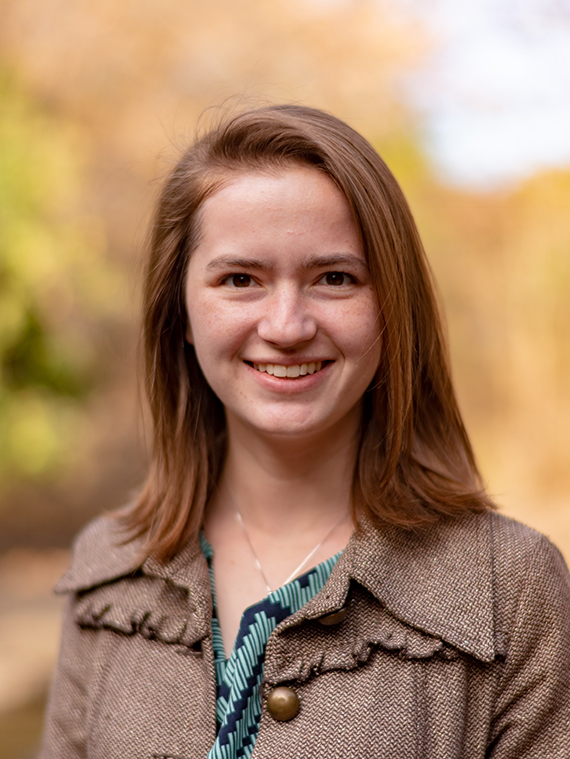
Elizabeth Hambrick
Accounting and Real Estate
By Eunice Archila
Accounting and Real Estate major Elizabeth Hambrick is one of 10 children. Her parents, Brent and Colette, are missionaries who moved their family to Honduras when Elizabeth was just three months old. Her father founded MedMissions, an organization that provides free health care. When Elizabeth and her family returned to the United States eight years later, they were completely broke. Coming back to the U.S. was a complete culture shock for Elizabeth. Although she was born in the United States, her home was Honduras. She had grown accustomed to a different lifestyle and it took her some time to acclimate to the culture in Texas.
It was not long before the family returned to their mission work, this time in Guatemala and Cuba. It was there that Elizabeth realized her passion helping others, but also came to understand the amount of money necessary to support it.
She devised a plan to major in real estate—a career which would allow her to earn enough income to support missions. She wanted to attend a high-quality university, but didn’t want to be bogged down with student loans.
When she returned from Cuba, Elizabeth secured a full-time job at a restaurant where she saved and invested her earnings. She eventually secured a scholarship that would cover a full ride at UNT. She began her first semester at UNT as a full-time student in Fall 2017, also working 30 hours a week to support herself. It wasn’t an easy task for her.
“God saw me through. He provided me with the strength, knowledge and community that I needed to succeed,” says Elizabeth.
In 2019, she left her job to begin a summer internship in real estate and then studied abroad in Scotland during Fall 2019. Little did she know, her world would completely shift when the pandemic hit. When Elizabeth’s classes were moved to virtual learning, she took the opportunity to spend more time with her family. Her grandmother, who owned and managed a small rental home, was having difficulty with the current tenants; they were not paying rent. Elizabeth offered to help her grandma with managing the property.
“By March the tenants had vacated the property and I began to renovate it. Every day, I would wake up at 7 a.m., work on the house for eight hours and then study until midnight. My dad and siblings helped whenever possible, but it was a big job.”
In the midst of the pandemic, she wasn’t sure what she would do. After two months, Elizabeth had new tenants moving in, her first taste in house renovations and she was hooked. Since there were no job prospects, she decided to buy a house and flip it. Having saved money throughout college, she was able to make a 50% down payment on her next house. She was able to secure a loan and began renovations before her 21st birthday. The process took far longer than she had anticipated. If Elizabeth didn’t know how to do something, she would watch a YouTube video or call a friend.
“My dad and younger brother came up every other week to help me. Occasionally a family friend or two with skills or free time would lend a helping hand,” says Elizabeth. The house was move-in ready six weeks after Elizabeth purchased it.
During the summer, her father suggested she buy another house, only this time with investors. She found five investors with capital to purchase four houses with her as a partner; she began renovating them. The COVID-19 lockdown helped her channel all her energy and time to flipping houses. After months of working 12- to 16-hour workdays, Elizabeth now has seven rental properties that are all occupied.
“My business almost started itself. God is the only One who could have made this happen. Initially I didn’t even have the ambition to begin my business before I graduated, but God showed me the way,” says Elizabeth. With the help of her family and the wisdom and academic knowledge from Professor John Baen, she was able to start her career sooner rather than later.
Elizabeth offers the following advice which helped her in her career: “Two things hold people back in life—fear of failure and lack of margin. If you're interested in success, accept the fact that you will fail at something and create the margin necessary to turn that failure into a success.”
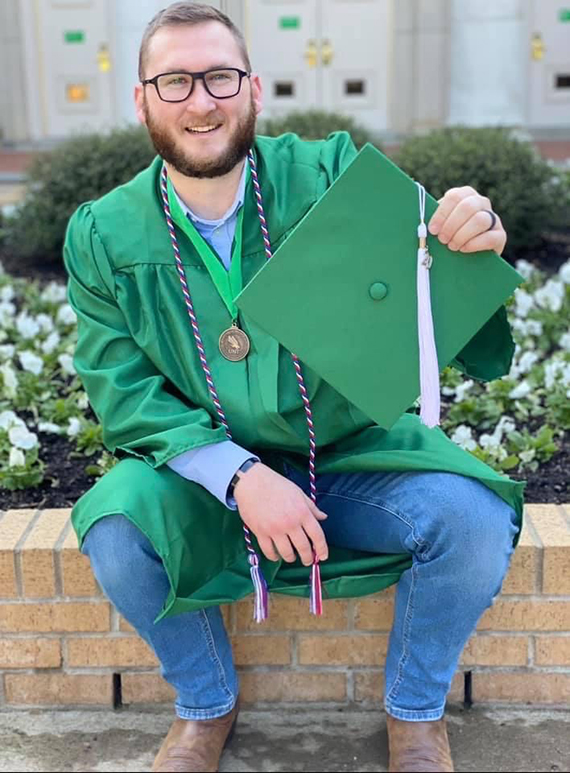
James Deering
Bachelor of Applied Arts and Sciences
By Amanda Fuller
James Deering joined the military after graduating high school, just as his father and grandfather had.
He served in the U.S. Army as an Airborne Infantryman for five years. When his second contract was nearing its end, he decided to change paths and pursue his college education.
He started taking classes through Dallas College and secured a position as a peer tutor, which helped him make connections and give back to his new community.
James eventually transferred to a university to complete his four-year degree. Separated from his family, who had been his support system throughout his transition to civilian life, he found himself struggling to stay on track. He made the difficult decision to put college on hold while he reconnected with his loved ones and his goals.
Once he was back on his feet, he returned to Dallas College, completed two associate’s degrees – one in business administration and the other in science – and landed a career in corporate property management.
“The job was great, but the degrees weren’t enough,” says James. “I needed a bachelor’s. I needed to finish what I started.”
Many of his friends and colleagues are UNT graduates, but what finally persuaded James to apply was attending his wife’s undergraduate and graduate commencement ceremonies at UNT.
He rounded up his transcripts and applied for the Bachelor of Applied Arts and Sciences (BAAS) program. Not only did he get in, but after meeting with an advisor, he learned he only had three semesters ahead of him before graduation.
One of the things James loves the most about UNT is the community. “UNT has a great reputation as a school, but the people make the difference. I am glad I got to be a part of it.”
His advice for incoming students is that no matter how long it takes, it can be done.
“Don’t rush, but don’t procrastinate. Life dealt me a fair share of obstacles, but I kept the goal. Now here I am in my final semester with the finish line right in front of me. It may have taken me until 30 years old, but the journey is half the adventure.”
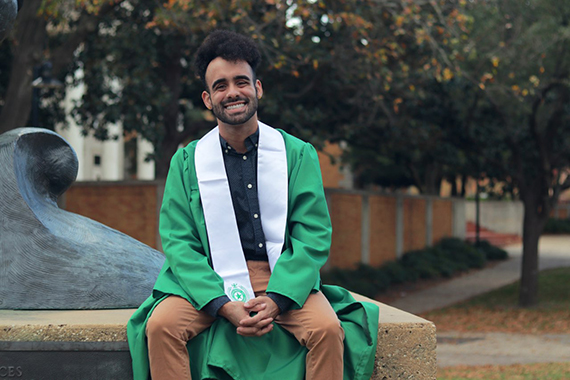
Davis Ponjuan
Music Education and Clarinet Performance
By Amy Brundeen
Davis Ponjuan knew he wanted to become a UNT student after his first summer attending the College of Music’s ClarEssentials summer music workshop in 2013.
“As soon as I got here, I was like, ‘Wow, I love the faculty. I love the campus. It’s a great place,’” says Davis.
So, Davis did what a lot of people would consider risky — he put all his eggs in one basket and only auditioned at UNT. He was accepted as a double major in music education and clarinet performance.
At the time, UNT was in the process of becoming a Minority-Serving Institution, and Davis appreciated the inclusivity he saw.
“I’m kind of the poster child for diversity,” says Davis. “I am mixed-race. I identify as Afro-Cuban and white. I identify as Latinx and I do speak Spanish. I identify as white because that is another part of me. I am also LGBTQ, so I am a queer man of color, who is also a progressive Christian.”
Davis’ parents aren’t musical, but they have encouraged him every step of the way.
“My parents were always supportive and always will be in everything I do,” says Davis. “My dad is a professor of education and does the majority of his research on men of color in higher education and my mom works in admissions at Texas A&M, but both fully support my career in music.”
Davis says he realizes he is fortunate because many children don’t have that level of support, primarily because people don’t realize what opportunities are out there in the field of music.
“The majority of people who aren’t in the field dissuade their family members from going into careers in music, but not out of malice,” says Davis. “They aren’t aware of the diversity that exists in the music field. There is a place for everyone to make a living and live comfortably.”
Davis learned this firsthand as a high schooler when he attended his first Texas Music Educators Association conference as an All-State Band participant, during which he saw tens of thousands of professionals and students from all different backgrounds.
This fall, Davis was the recipient of a TMEA Collegiate Music Educator Award, but his success is not limited to music. He is graduating Summa Cum Laude with two bachelor’s degrees in music and was chosen as the 2019-20 Academic Coach of the Year for the UNT Learning Center, where he has worked for the past two years.
Davis believes the Learning Center is “the best resource on campus,” and says being hired as an academic coach was the turning point in his college career, after he suffered a series of rejections from a number of positions at UNT. From those experiences, he continues to pass on what he’s learned to others, such as time management and the importance of sleeping and eating well.
“Having those hard life lessons, just growing up and maturing and becoming an adult at UNT,” says Davis. “Over the course of a year, I took 49 hours and worked two jobs and got a perfect grade point average; I was succeeding at school while staying physically and emotionally healthy. That would not have happened if I didn’t have the challenge of my freshman year.”
As an instructional coach and now as a middle school and high school band student teacher Davis tries to use those lessons and to inspire others.
“There's just so many things that I want to influence. Of course, I want to teach music appreciation, but as a queer man of color, I want to help create a world where people who have my identities—one of them, if not all—can look around no matter who they are, and see someone like them,” says Davis.
Davis plans to teach in public school for a few years before returning for his master’s and doctorate in music in wind band conducting. He hopes to one day conduct a major university wind ensemble. Above all Davis is an educator, which he says is integrally part of being a conductor. He credits his mother Lurel DeBra, his clarinet professor Kimberly Cole Luevano, his music education professor Crystal Gerrard and the supervisors at The Learning Center, Liz Berry and Allyson Gardner, for all contributing to the person he is today.
“My teaching philosophy is basically this – perfection is something we should strive for, but never expect,” says Davis. “The only thing you can expect of yourself is that you are better than you were the day before.”
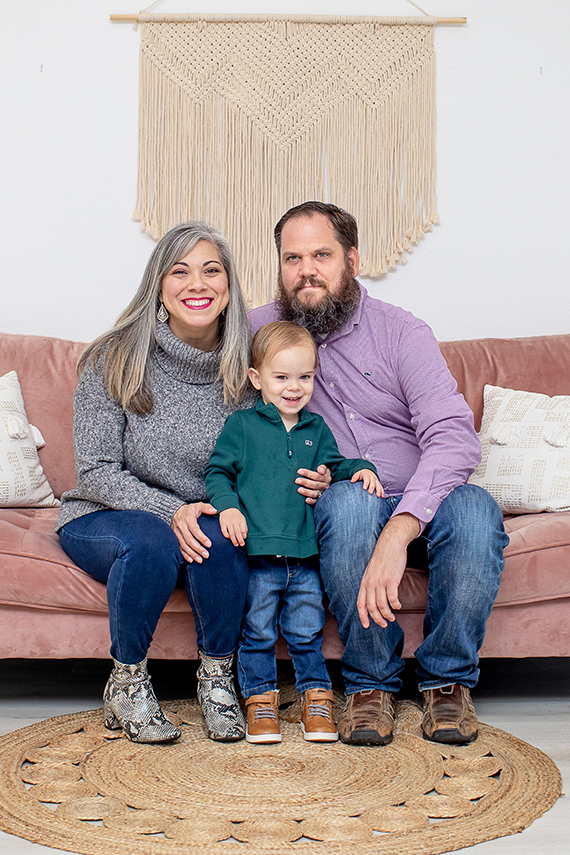
Sarah Walkinshaw
Finance
By Scott Brown
Achieving financial independence is a primary motivator for most college students. You spend years investing your time, money, mind and soul into a degree to prepare you for a career that will yield a positive return on that investment.
For Sarah Walkinshaw, financial independence isn’t just a personal goal — it represents making it through a time in her life she never wants to go through again.
When Sarah originally transferred to UNT in 2006, she planned to major in media arts so she could go into a career in television production.
While she was earning her core credits, Sarah oscillated between service industry jobs like bartending or waiting tables and finding work in office jobs through a temp agency, which eventually landed her a tax season gig with TD Ameritrade.
“I really enjoyed the subject matter and found it interesting,” says Sarah. “I picked it up fairly quickly and at the end of tax season, I was offered a full-time spot. Part of the contingency for that was that I would need to study for and earn my Series 7 General Securities License and then my Series 63 pretty quickly.”
She earned the required industry certifications while working at TD Ameritrade and eventually transferred to a different company where she could focus more on client education. But when the market crashed in 2008, Sarah found herself unemployed and had to put her degree on hold.
Sarah also found herself in an emotionally abusive and controlling relationship and she was embarrassed about it. She wondered how this could have happened; she wasn’t the type to be in an abusive relationship. Soon, she began to sock money away as she planned to break free of the relationship.
“I started to hide money away,” says Sarah. “If I made $80 that day, I would say that I only made $60 and hide the other $20 away. I did that for several months and it finally came to a head about five or six months later. I ended up not going home from work one Friday night and sent a text message that I was spending the weekend with a girlfriend and don’t call me. I went home after that weekend, packed up what I could fit in my car and told him to take care of the dog because I wasn’t coming back.”
For the next several years, Sarah continued to bounce between working in the service industry and office jobs before she wound up back in financial services. During that time, she also met her future husband, who she married in October of 2017 and — with her life in a much more stable place — Sarah decided it was time to finally finish earning her degree.
She knew she also wanted to earn her Certified Financial Planner™ certification, and discovered that UNT’s G. Brint Ryan College of Business offered degree plans that were approved by the CFP board.
Sarah planned to return in Spring 2018. But a few weeks after she enrolled, she found out she was pregnant, so she deferred her restart to that summer. Her son was born the day after she completed the Summer I session, and she was able to complete her fall classes 100% online while she was on maternity leave.
It may have taken longer than she originally planned, but when Sarah earns her degree this December, she’ll be able to say she did it while working full-time, while pregnant, while raising a newborn, while raising a toddler and during a once-in-a-lifetime pandemic. And she says her motivation to overcome all those obstacles is her desire to help others avoid the kind of financial insecurity that originally delayed her from earning her degree.
“I want to empower others,” says Sarah. “I want to show a young single person, or grandparent or college dropout that you can start over. I want to help people achieve their goals — whether that’s a dream vacation, leaving a legacy for their grandchildren or a simple trip to the ballpark.”